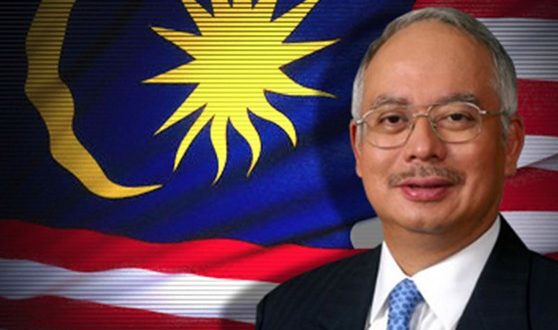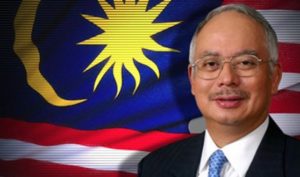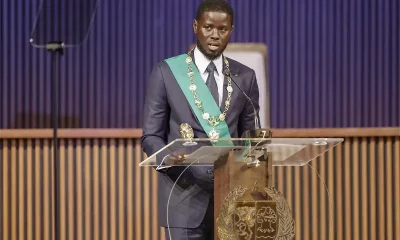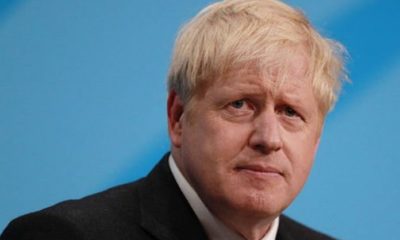Foreign News
Malaysia’s Najib Dissolves Parliament Paving Way For Tough Election

By Kuala Lumpur
Malaysian Prime Minister Najib Razak announced the dissolution of parliament
on Friday, more than two months before the end of his five-year term, paving the way for a general election.

Najib, 64, burdened by a multi-billion dollar scandal linked to a state fund, is under pressure to deliver an
emphatic win for his Barisan Nasional (BN) coalition as he struggles to appease voters unhappy with rising
living costs and blunt a challenge by his old mentor and former prime minister Mahathir Mohamad.
Najib is widely expected to retain power, especially with a deep rift between Mahathir’s opposition alliance
and the Pan-Malaysian Islamic Party (PAS), which analysts expect will split the opposition vote.
Najib said he met Malaysia’s king, Sultan Muhammad V, to gain approval for the dissolution.
“The king has permitted for parliament to be dissolved effective Saturday,” Najib said in a special
announcement on the state TV broadcaster.
“If victory is given to BN, we promise to do our best, to carry out a bigger, more inclusive and more comprehensive
transformation of the country,” Najib said.
Polling must be held within 60 days from the dissolution of parliament.
The Election Commission is expected to meet within the week to announce a date for the vote.
Najib’s announcement comes on the back of robust growth for Malaysia, buoyed by a recovery in global crude oil
prices and increased trade and infrastructure investment from Malaysia’s largest trading partner, China.
A general election was widely expected to be called in 2017, but Najib held off, apparently to allow time for
the introduction of budgetary reforms aimed at lower income families and rural voters, who make up a key voting bloc for his ruling BN coalition.
The government has also approved the election commission’s plan to redraw electoral boundaries and passed a
contentious anti-fake news bill, changes that the opposition claims would favor Najib and his ruling allies.
Najib’s United Malays National Organisation (UMNO) party heads the ruling coalition that has held power since Malaysia’s independence in 1957.
The coalition lost the popular vote in the last election, in 2013, but Najib held on to power with a smaller
majority in parliament.
But a weaker result, even if the coalition retains power, could lead to an internal leadership challenge against Najib.
Najib resisted demands to step down in mid-2015 following reports of financial mismanagement at state fund
1Malaysia Development Berhad (1MDB), including that 681 million dollars was deposited into his personal
bank account.
Najib has denied any wrongdoing. Transactions related to 1MDB are under investigation in six countries including
the U. S., Singapore and Switzerland.
Najib has clamped down on dissent, sacking critics from his cabinet and party who questioned his involvement in 1MDB.
The scandal has created a rift between Najib and 92-year-old Mahathir, who ruled for 22 years before retiring in
2003, and has become Najib’s harshest critic.
The common goal of taking down Najib, Mahathir has joined hands with his former deputy and jailed opposition
leader, Anwar Ibrahim, ending a bitter feud that had shaped the country’s political narrative over two
decades.
-

 News4 days ago
News4 days agoInsecurity: Kogi Schools Resume On Monday
-

 Opinion4 days ago
Opinion4 days agoDon’t Pull the Plug: Why Nigerians Are Pleading for the U.S. to Extend Its Police Training Program — and Why It Must Synergize With New Military Arrivals
-

 Crime3 days ago
Crime3 days agoVigilante Reportedly Shoots Colleague Dead In Plateau
-

 Crime5 days ago
Crime5 days agoPolice Arrest Two Over Murder Of 62-Year-Old Woman In Oyo






